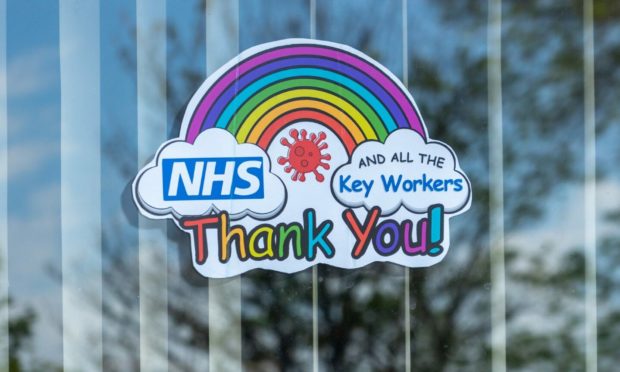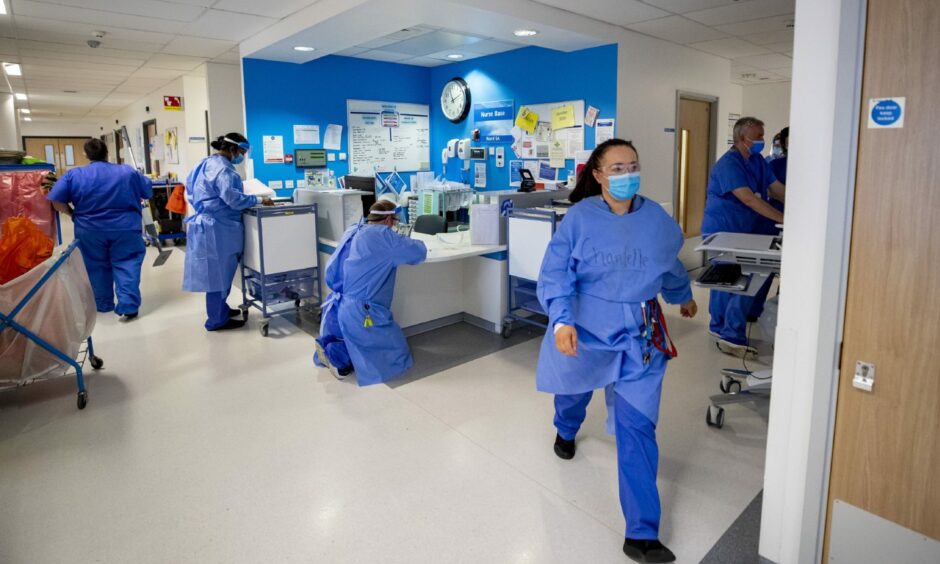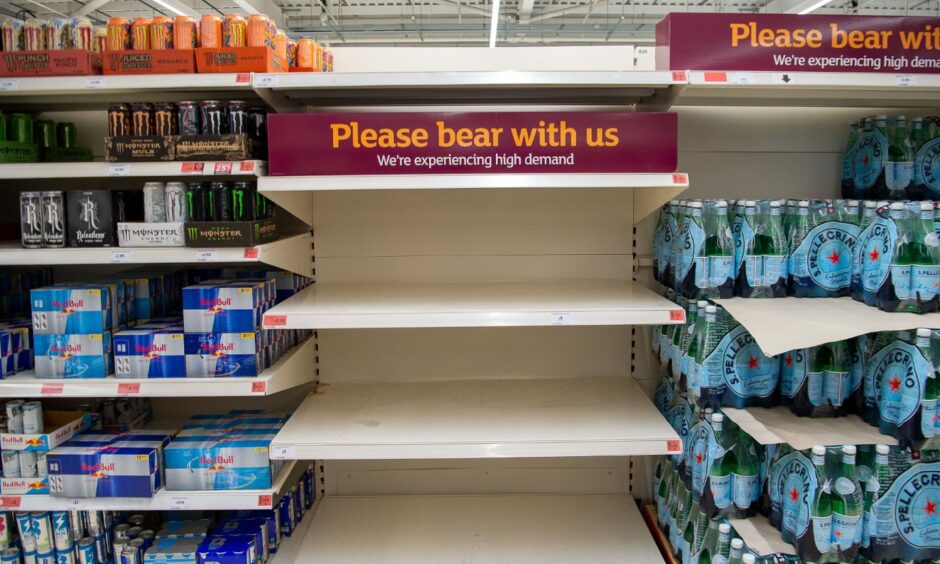Fully-vaccinated essential workers in Scotland can avoid self-isolation after close contact with Covid-19 cases if they meet strict criteria.
The changes have been made to allow essential staff in critical roles to return to work to maintain lifeline services and critical national infrastructure.
There has been growing concern at the lack of produce in some shops as more people were forced to self-isolate after receiving alerts on Covid contact tracing phone apps – dubbed the ‘pingdemic’.
Critical industries affected by staff shortages due to self-isolation must apply to the Scottish Government for staff to be exempt from the mandatory quarantine rules.
The exemptions will be made on a temporary basis and last only as long as there is an immediate risk to business or service continuity.
The impact of these changes will be considered at the next review point on August 3, when First Minister Nicola Sturgeon makes a statement to the Scottish Parliament.
She will confirm the final decision on Scotland’s planned move out of Level 0 Covid-19 restrictions on August 9.
Ms Sturgeon has previously said self-isolation rules for close contacts may apply more generally in the future.
Who can apply?
Businesses and organisations that meet the definition of Critical National Infrastructure can apply for an exemption from the Scottish Government.
There are 13 national infrastructure sectors:
- Chemicals
- Civil nuclear
- Communications
- Defence
- Emergency services
- Energy
- Finance
- Food
- Government
- Health
- Space
- Transport
- Water
In addition, each business or organisation must:
- Be impacted by staff shortages as a direct result of self-isolation requirements.
- Have a critical service at imminent risk due to the staff shortage.
- Have exhausted all other options to address pressures on operations.
Health and social care staff
Health and social care workers who have come into contact with a positive Covid-19 case may be eligible for exemption from self-isolation, under the following conditions:
- Work in health and social care in Scotland.
- Fully vaccinated with the second dose more than 14 days ago.
- No symptoms of coronavirus.
However, exemption to self-isolation only applies in extreme circumstances as a last resort.
These include:
- Senior leadership of the organisation have identified the health and social care service is at risk.
- The line manager has conducted a risk assessment of the impact that individual self-isolating and that it would cause major disruption to service.
- Daily lateral flow tests must be carried out for 10 days from the day of close contact with a positive Covid-19 case.
- No ongoing contact with the person who tested positive – for example, they are not in the same household.
The full criteria is available on the NHS Inform website.
How it works
Strict criteria must be met before a staff member who is a close contact of a positive case can return to work. Staff must:
- Have had their second Covid-19 jab more than 14 days before.
- Have a vaccine certificate to show they are fully vaccinated. This can be requested via the NHS Inform website.
- Not have symptoms of Covid-19.
- Have evidence of a negative PCR test.
- Take daily lateral flow tests for up to 10 days after being expose to the virus.
- Fully comply with PPE requirements, hand hygiene and other infection control measures.
Employees who cannot reasonably isolate from ongoing expose to a Covid-19 positive household member will not usually be asked to return to work.
Exemption will only be granted in respect of members of staff who voluntarily agree not to self-isolate, and the employers’ duty of care to all their employees must be respected.
How to apply
Applications can be made via the Scottish Government website.
Businesses and organisations should email covid19outbreakmanagement@gov.scot.
Full details can be found here.
Once the application has been received, the Scottish Goverment will respond to the business or organisation who will then engage with staff.



